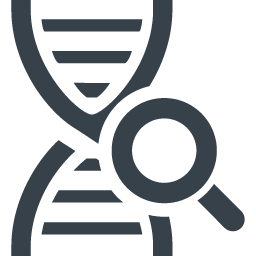 PI4KA gene related symptoms and diseases
PI4KA gene related symptoms and diseases
All the information presented here about the PI4KA gene and its related diseases, symptoms, and test panels has been aggregated from the following public sources: ORPHANET,HGNC,NCBIGENE,OMIM, Mendelian Rare Disease Search Engine.
Top 5 symptoms and clinical features associated to PI4KA gene
| Symptoms // Phenotype | % Cases |
|---|---|
| Perisylvian polymicrogyria | Common - Between 50% and 80% cases |
| Polymicrogyria | Common - Between 50% and 80% cases |
| Intellectual disability | Uncommon - Between 30% and 50% cases |
| Flexion contracture | Uncommon - Between 30% and 50% cases |
| Disseminated intravascular coagulation | Uncommon - Between 30% and 50% cases |
Other less frequent symptoms and clinical features
Patients with PI4KA gene alterations may also develop some of the following symptoms and phenotypes:Not very common - Between 30% and 50% cases
- Recurrent deep vein thrombosis
- Post-angioplasty coronary artery restenosis
- Micrognathia
- Talipes equinovarus
- Pulmonary embolism
- Cerebellar hypoplasia
- Dolichocephaly
- Arthrogryposis multiplex congenita
And 21 more phenotypes, you can get all of them using our tools for rare diseases.
Rare diseases associated to PI4KA gene
Here you will find a list of rare diseases related to the PI4KA. You can also use our tool to get a more accurate diagnosis based on your current symptoms.
BILATERAL PERISYLVIAN POLYMICROGYRIA
Alternate names
BILATERAL PERISYLVIAN POLYMICROGYRIA Is also known as perisylvian syndrome, congenital bilateral, bpp, cbps, pmgx
Description
Polymicrogyria (PMG) is a malformation of cortical development in which the brain surface is irregular and the normal gyral pattern replaced by multiple small, partly fused gyri separated by shallow sulci. Microscopic examination shows a simplified 4-layered or unlayered cortex. Several patterns of PMG, including bilateral frontal, bilateral perisylvian, and bilateral mesial occipital PMG, have been described on the basis of their topographic distribution. All but the perisylvian form appear to be rare. Bilateral perisylvian PMG (BPP) often results in a typical clinical syndrome that is manifested by mild mental retardation, epilepsy, and pseudobulbar palsy, which causes difficulties with expressive speech and feeding (Kuzniecky et al., 1993).PMG may be a feature of other conditions as well (see, e.g., {300643}).
Most common symptoms of BILATERAL PERISYLVIAN POLYMICROGYRIA
- Intellectual disability
- Seizures
- Global developmental delay
- Cognitive impairment
- Delayed speech and language development
More info about BILATERAL PERISYLVIAN POLYMICROGYRIA
HEPARIN COFACTOR II DEFICIENCY
Alternate names
HEPARIN COFACTOR II DEFICIENCY Is also known as thrombophilia due to heparin cofactor ii deficiency, thph10, hcf ii deficiency, hcf2 deficiency
Description
Heparin cofactor II (HCF2 ) rapidly inhibits thrombin in plasma in the presence of dermatan sulfate or heparin. Congenital HCF2 deficiency is associated with thromboembolism and is classified into type I (quantitative) or type II (qualitative) deficiency (Kondo et al., 1996).
Most common symptoms of HEPARIN COFACTOR II DEFICIENCY
- Venous thrombosis
- Thromboembolism
- Pulmonary embolism
- Deep venous thrombosis
- Disseminated intravascular coagulation
More info about HEPARIN COFACTOR II DEFICIENCY
POLYMICROGYRIA, PERISYLVIAN, WITH CEREBELLAR HYPOPLASIA AND ARTHROGRYPOSIS; PMGYCHA
Most common symptoms of POLYMICROGYRIA, PERISYLVIAN, WITH CEREBELLAR HYPOPLASIA AND ARTHROGRYPOSIS; PMGYCHA
- Micrognathia
- Flexion contracture
- Talipes equinovarus
- Cerebellar hypoplasia
- Dolichocephaly
More info about POLYMICROGYRIA, PERISYLVIAN, WITH CEREBELLAR HYPOPLASIA AND ARTHROGRYPOSIS; PMGYCHA
SOURCES: OMIM
Search interest in PI4KA
Potential gene panels for PI4KA gene
Polymicrogyria, perisylvian, with cerebellar hypoplasia and arthrogryposis Panel
 Germany.
Germany.
By Centogene AG - the Rare Disease Company
This panel specifically test the PI4KA gene.
More info about this panel Germany.
Germany.
PI4KA Panel
 United States.
United States.
By Fulgent Genetics Fulgent Genetics
This panel specifically test the PI4KA gene.
More info about this panel United States.
United States.
If you liked this article maybe you will also find interesting the following in-depth articles about other rare diseases, like ZNF711 TPM1 DCTN1 DOP1A AP3B2 ADNP